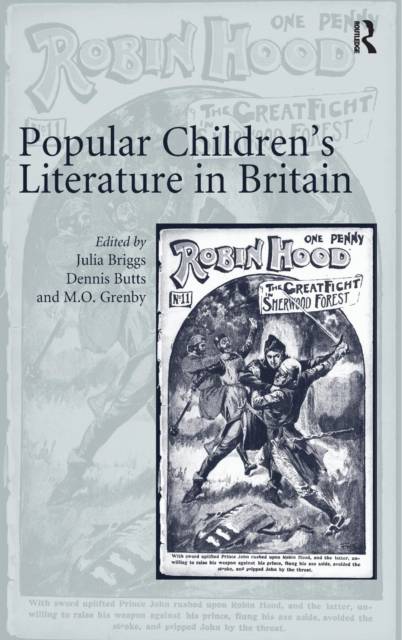
Je cadeautjes zeker op tijd in huis hebben voor de feestdagen? Kom langs in onze winkels en vind het perfecte geschenk!
- Afhalen na 1 uur in een winkel met voorraad
- Gratis thuislevering in België vanaf € 30
- Ruim aanbod met 7 miljoen producten
Je cadeautjes zeker op tijd in huis hebben voor de feestdagen? Kom langs in onze winkels en vind het perfecte geschenk!
- Afhalen na 1 uur in een winkel met voorraad
- Gratis thuislevering in België vanaf € 30
- Ruim aanbod met 7 miljoen producten
Zoeken
€ 305,45
+ 610 punten
Omschrijving
The astonishing success of J.K. Rowling and other contemporary children's authors has demonstrated how passionately children can commit to the books they love. But this kind of devotion is not new. This timely volume takes up the challenge of assessing the complex interplay of forces that have created the popularity of children's books both today and in the past. The essays collected here ask about the meanings and values that have been ascribed to the term 'popular'. They consider whether popularity can be imposed, or if it must always emerge from children's preferences. And they investigate how the Harry Potter phenomenon fits into a repeated cycle of success and decline within the publishing industry. Whether examining eighteenth-century chapbooks, fairy tales, science schoolbooks, Victorian adventures, waif novels or school stories, these essays show how historical and publishing contexts are vital in determining which books will succeed and which will fail, which bestsellers will endure and which will fade quickly into obscurity. As they considering the fiction of Angela Brazil, Enid Blyton, Roald Dahl and J.K. Rowling, the contributors carefully analyse how authorial talent and cultural contexts combine, in often unpredictable ways, to generate - and sometimes even sustain - literary success.
Specificaties
Betrokkenen
- Auteur(s):
- Uitgeverij:
Inhoud
- Aantal bladzijden:
- 356
- Taal:
- Engels
Eigenschappen
- Productcode (EAN):
- 9781840142426
- Verschijningsdatum:
- 28/05/2008
- Uitvoering:
- Hardcover
- Formaat:
- Genaaid
- Afmetingen:
- 156 mm x 234 mm
- Gewicht:
- 675 g

Alleen bij Standaard Boekhandel
+ 610 punten op je klantenkaart van Standaard Boekhandel
Beoordelingen
We publiceren alleen reviews die voldoen aan de voorwaarden voor reviews. Bekijk onze voorwaarden voor reviews.









